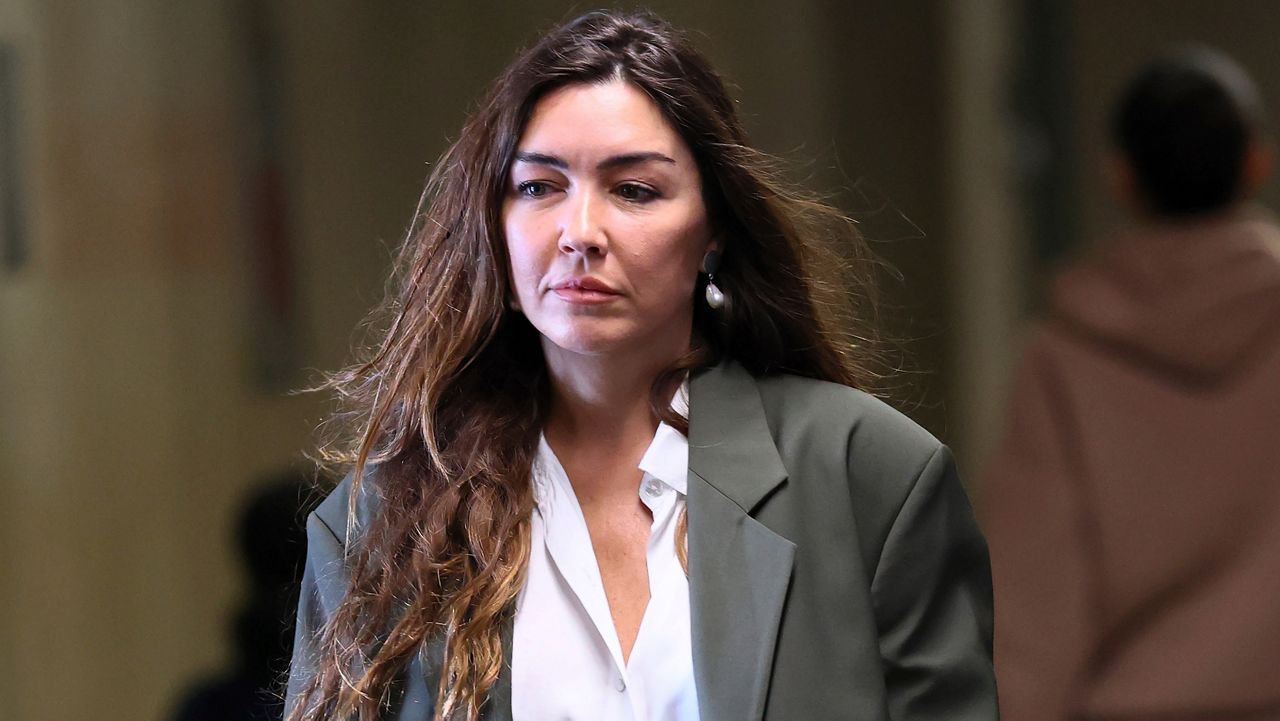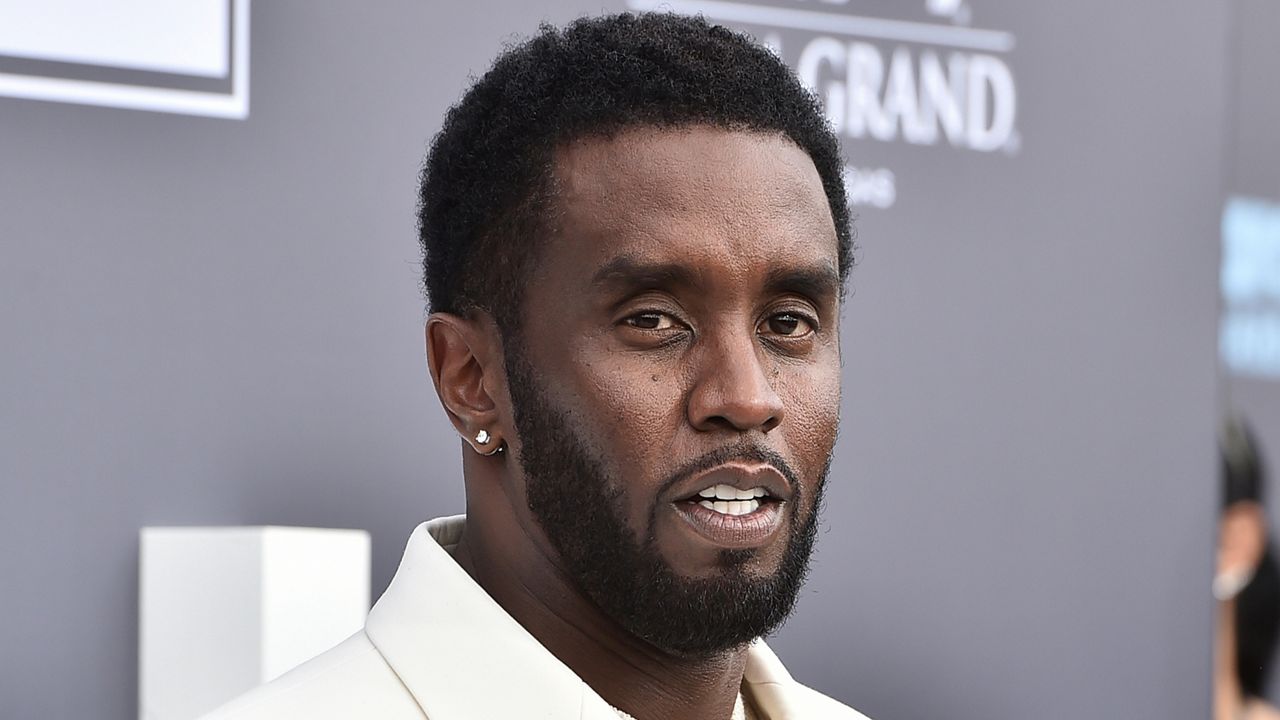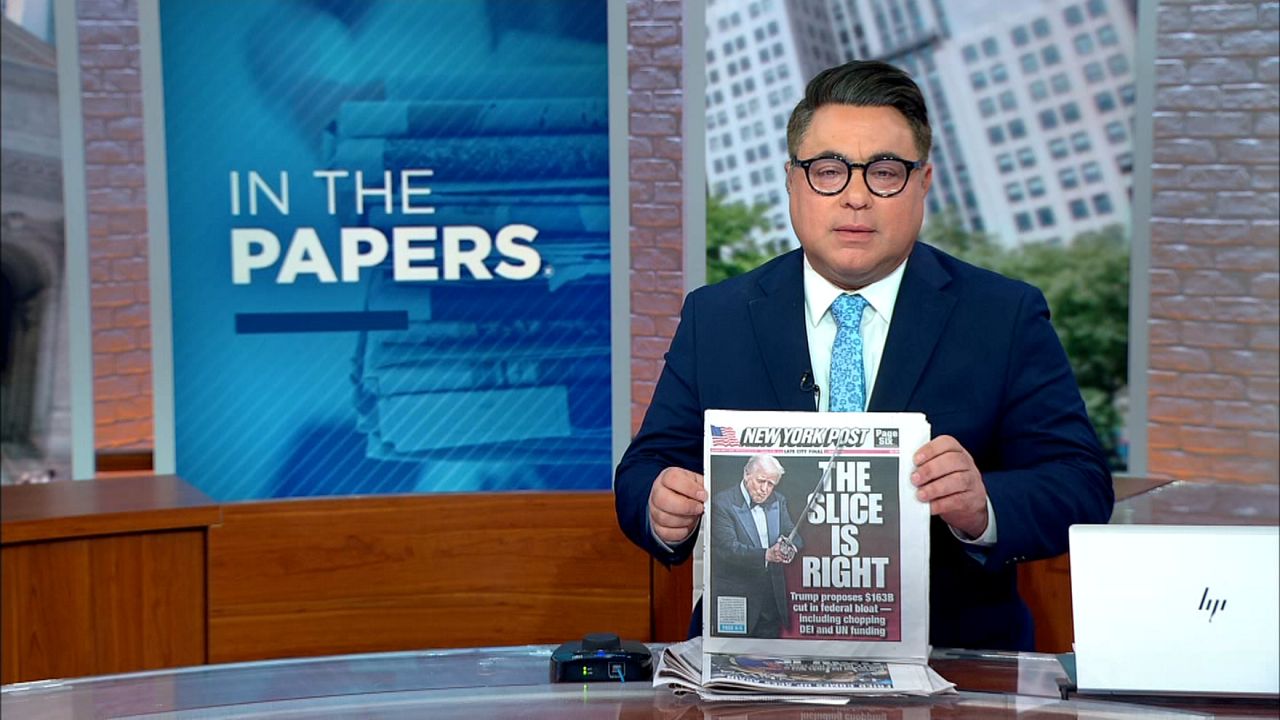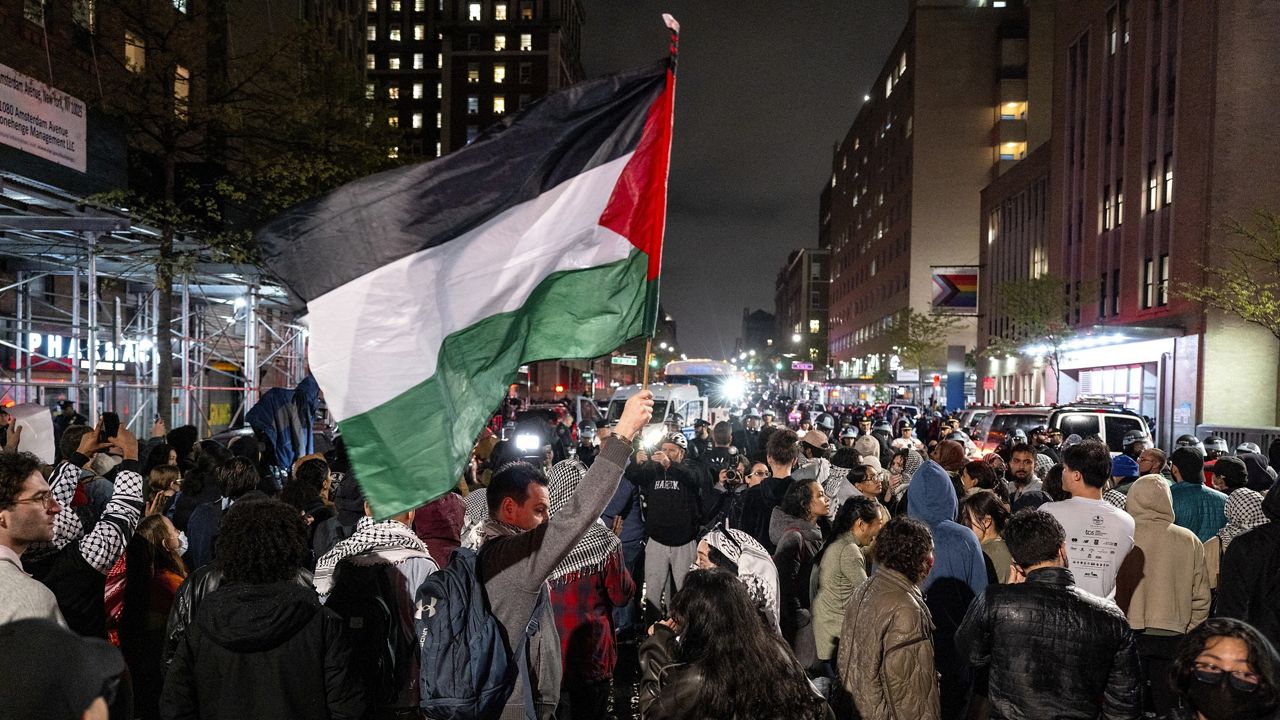New York City recorded fewer homicides last month than it did in March 2021, but overall crime rose by nearly 37%, with increases in shootings, robberies and burglaries, the NYPD said Wednesday.
The five boroughs logged 32 murders last month — a 15.8% decrease from March 2021, when 38 murders were reported, NYPD statistics released on Wednesday show.
Overall crime across the city, however, was up by 36.5% year-over-year in March, the department said, with robberies up by 48.4%, felony assaults up by 17.5%, burglaries up by 40%, grand larcenies up by 40.5% and grand larcenies auto up by 59.4%, the statistics show.
What You Need To Know
- New York City recorded fewer homicides last month than it did in March 2021, but overall crime rose by nearly 37%
- The five boroughs logged 32 murders last month — a 15.8% decrease from March 2021, when 38 murders were reported
- But robberies were up by 48.4%, felony assaults up by 17.5%, burglaries up by 40%, grand larcenies up by 40.5% and grand larcenies auto up by 59.4%
- The city also recorded 115 shootings last month, up 16.2% from the 99 shootings it logged in March 2021
Hate crimes were on the rise as well, with a 16% jump recorded between the 56 crimes reported in March 2021 and the 65 reported last month, the NYPD said.
Crimes motivated by victims' perceived sexual orientations saw the highest jump — 233% — with 10 reported last month compared to three reported in March 2021.
The city also recorded 115 shootings last month, up 16.2% from the 99 shootings it logged in March 2021, the NYPD said.
“What’s motivating our shootings in New York City? A crew or a gang nexus accounted for 37% of our shootings in March, and 40% of our shootings for the year,” NYPD Chief of Crime Control Strategies Michael LiPetri said at a news briefing Wednesday afternoon.
“Those numbers will only rise as the Detective Bureau continues to investigate these shootings,” he added.
The city saw an increase in narcotics-related shootings, “small increases” in domestic shootings and an “uptick” in shootings related to “road rage incidents, over simple fender-benders where individuals were carrying illegal firearms,” LiPetri said.
Daytime shootings, meanwhile, were on the rise last month, he said, noting that approximately 25% of March’s shootings took place during the day.
“The trend is what it usually is not,” LiPetri said. “We see more daytime shootings than we’ve seen in the past.”
Some of the city’s shooting victims last month were children: 13% were under the age of 18, he said.
And geographically, the NYPD saw a pattern when it came to shooting incidents, he said. About half of the shootings in March happened in 10 neighborhoods — five in the Bronx, four in Brooklyn and one in Queens, he said.
Thirty-three percent of the shootings the department logged last month happened in the Bronx, he noted.
NYPD Chief of Department Kenneth Corey on Wednesday emphasized the work of the NYPD’s new neighborhood safety teams, which began rolling out on March 14.
As of Monday, the teams had made 135 arrests, including 25 gun arrests, Corey said.
“The people that they’ve arrested carrying illegal guns, 16% of those are juveniles, 20% of those have an open pending felony case in New York City, and 28% of those are previously-convicted felons,” he said.
Of the 135 people arrested, 68% had a prior arrest record; 56% had a prior arrest “for one of the seven major felonies,” and 16% were either on parole or probation, he said.
“So that speaks to the precision enforcement that the teams were charged with going after, the drivers of violence, the people who cause harm in the community,” he said.
The NYPD, LiPetri said, was “at a 21-year high arresting people for seven major offenses, the major crimes” in March, as well as year-to-date.
“When I compare approximately the same number of crimes in prior years to what we have this year, we are still at a substantial high,” he said.
In a statement released on Wednesday, NYPD Commissioner Keechant Sewell said the department would “continue to provide fair, effective and responsive policing that best reflects the needs of the communities we serve.”
“But the NYPD needs the steadfast commitment of all its partners, pulling in the same direction, to realize our goal of public safety for every New Yorker,” Sewell added.




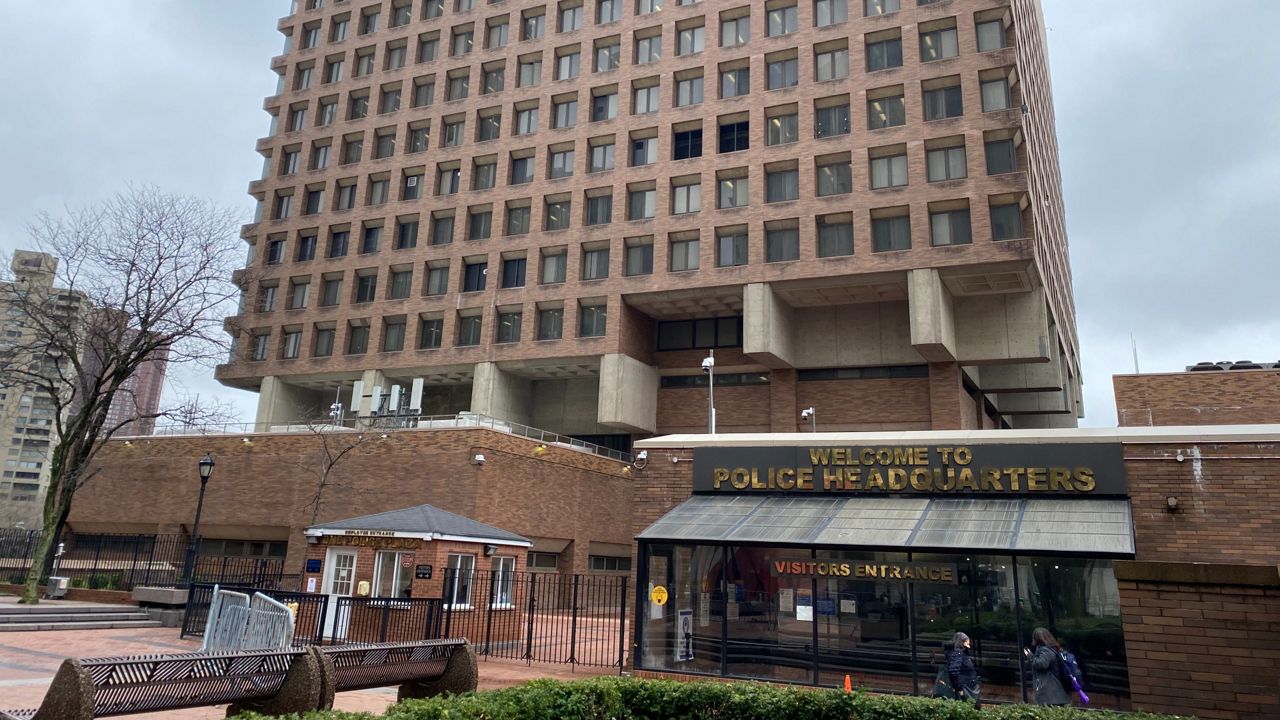
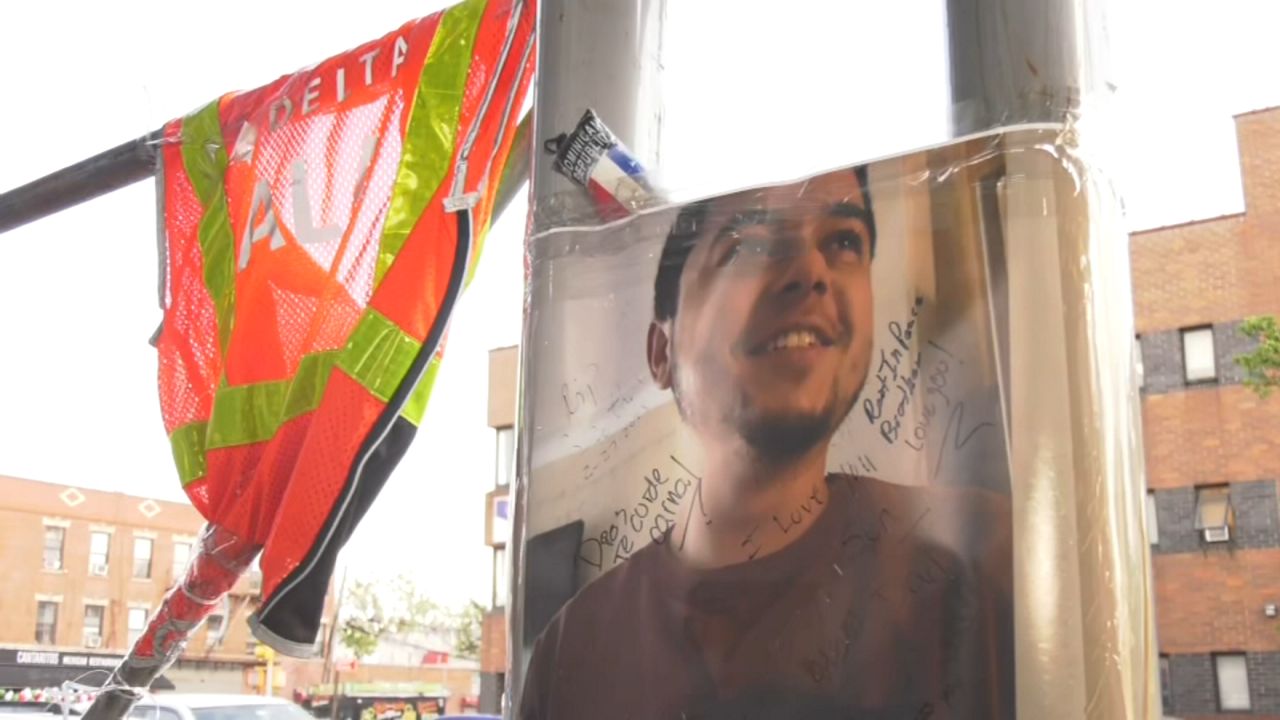
_Pkg_Car_Stolen_with_Child_Inside_Clean_FOR_APPROVAL_134114017_565)
